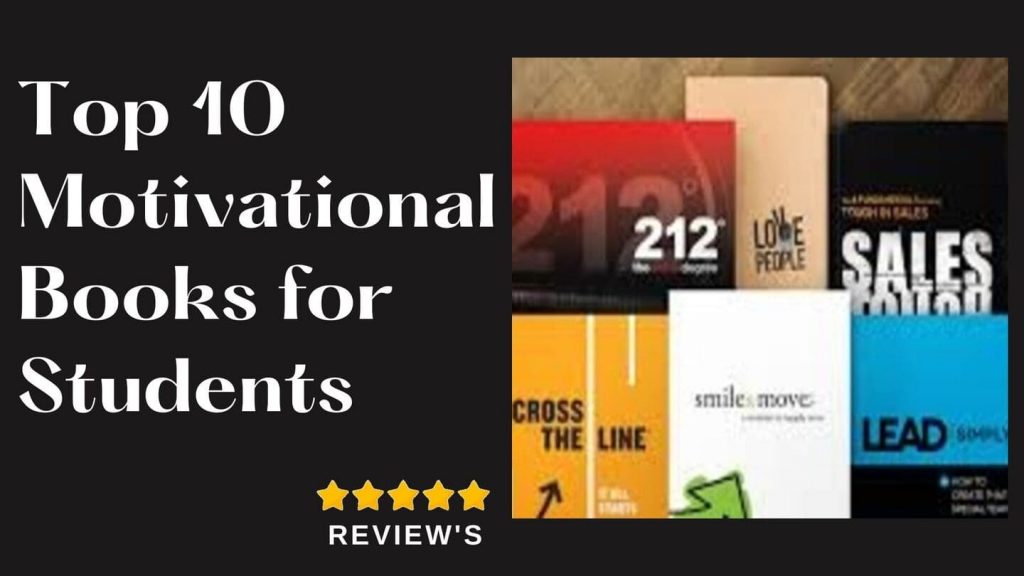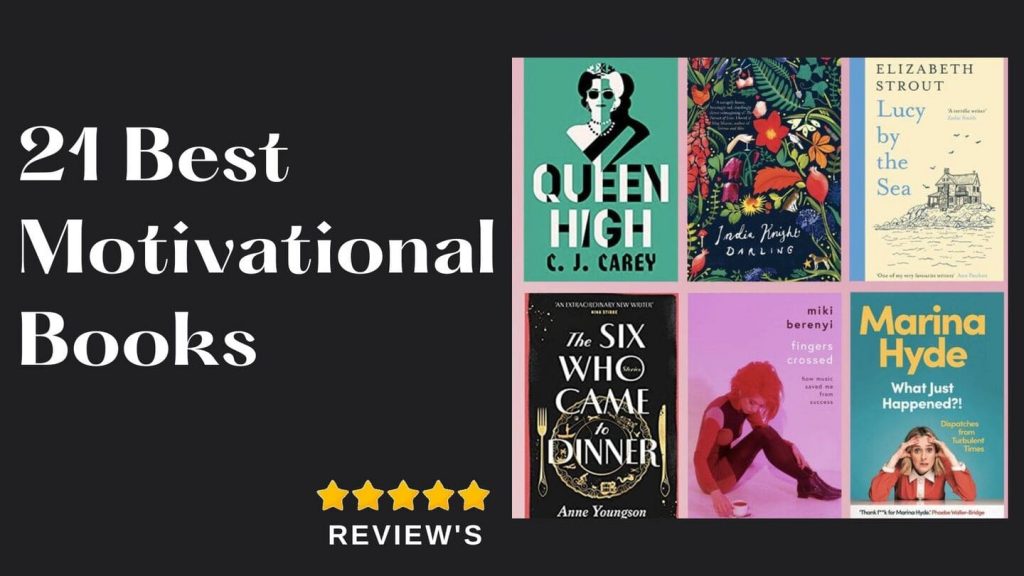About your happiness? How about one of the 101 best motivational books? Let’s say: you would, but you have no idea about the author or the title.
Don’t worry, we’re here to help!
Bookmark this article to keep you covered throughout 2022. Even though it takes less than three days to read a 300-page book! Whether you’re interested in personal development or personal growth books, whether you want the best motivational books for women or the best motivational books of all time, they’re all here.
- The Scientific Secrets of Perfect Timing
- Says Daniel H. Pink (author of To Sell Is Human: The Surprising Truth About Motivating Others)
- Drawing on four decades of scientific research on human motivation
- How that affects every aspect of life
- What if my WHY sounds just like my competitors?
- Can I have more than one WHY?
- If my work doesn’t match my WHY, what should I do?
- What if my team can’t agree on our WHY?
- Only two enemies stand in our way
- An external enemy
- An internal enemy
- A sort of self-oppression caused by our own doubt and fear.
[ez-toc]
1. The “Basics of Motivation” shelf.
You cannot motivate yourself without learning what motivation is. Do you want to do it? Well, these 10 books provide a great philosophical and theoretical framework!
1.1 Brendon Burchard – The Motivation Manifesto
About the book: What better way to start a list of the 101 best motivational books you should read in 2019 than with a motivational poster? And Brendon Burchard really lives up to his name! His “9 Statements to Claim Your Personal Power” will energize you deep within your heart! You should have this on your bedside table. Or even under you.
1.2 Simon Sinek – Find Your Why
About the book: In the book Start with Why, Simon Sinek introduced the world to – in his own words – “the world’s simplest idea”. In other words, why you do what you do is more important than how you do it or even what you do. In Find Your Why, Sinek teams up with Peter Docker and David Mead to bring us the book we’ve all been waiting for: a practical guide to finding your why.
1.3 Daniel H. Pink – Drive
About the Book: The subtitle of Daniel H. Pink’s inspiring 2011 bestseller Drive – “The Surprising Truth about What Motivates Us” tells you everything you need to know about this book. First, explore the roots of motivation; and secondly, it draws unexpected conclusions. In short, money doesn’t motivate us; what it does is autonomy, control and purpose. (Read a short summary of the book | Buy the book)
1.4 Charles Duhigg – The Power of Habit
About the book: We are habits, and Duhigg knows that the real power of this insight lies in the fact that “your habits are what you choose to be.” But as you well know, choosing them is not easy: you are naturally motivated to do some things much more than others. And while changing them isn’t easy, you can actually do it: change the routine, but keep the first clue and the last reward. Apparently it works 100% of the time! (Read a short summary of the book | Buy the book)
1.5 Chip and Dan Heath – Switch
About the book: Speaking of habits and changing them, here’s another industry classic: Switch by Chip and Dan Heath. According to the Heath Brothers, all successful transformations follow the same pattern. In other words, people who change all have a clear direction, a lot of motivation and a supportive environment. Or to use the Jonathan Haidt analogy they use: you have to run the pilot; motivate the elephant and shape the path. See what we mean: see 9.7 below. (Read a short summary of the book | Buy the book)
1.6 Daniel Kahneman – Thinking, Fast and Slow
About the book: Daniel Kahneman is a world-renowned psychologist with a Nobel Prize in economics. So basically he already knows more about you than you will ever know about yourself. Thinking, Fast and Slow is a synthesis of his ongoing research into the dichotomy of fast and slow thinking. We don’t think that after reading this book you will value your judgment that much. (Read a short summary of the book | Buy the book)
1.7 Malcolm Gladwell – David and Goliath
About the book: Already in his forties, Malcolm Gladwell was already one of the most influential thinkers of our time. Now 55 years old, he is just an icon. Although – like all his books – a New York Times bestseller, David and Goliath is perhaps his least known book. But we think it’s probably his most motivating. Because it can show you why – and how – you can win, even when all the odds are against you. (Read a short summary of the book | Buy the book)
1.8 Joseph Campbell and Bill Moyers – The Power of Myth
About the book: Since the dawn of time, people have found different ways to motivate themselves to persevere and succeed. In The Power of Myth, a book based on a six-hour conversation between journalist Bill Moyers and mythologist Joseph Campbell during Campbell’s senior year, you’ll see why (and how) these ancient strategies still work. “Follow your luck,” says Campbell, “and doors will open where there were no doors before.” (Read a short summary of the book | Buy the book)
1.9 Clayton Christensen – How Will You Measure Your Life?
About the book: Clayton Christensen is a Harvard researcher best known for his theory of “disruptive innovation.” However, in how do you measure your life? – co-authored with James Allworth and Karen Dillon – instead of giving us another analysis of Schumpeter’s Capitalism, Socialism and Democracy, he offers us a book more in the tradition of Randy Pausch’s last lecture (see 5.10) . And we can be thankful! Because how do you measure your life? Introduces the “theory of hygienic motivation” for which the real drivers of existence are not money, but working conditions and job security combined with recognition, personal growth and sense of responsibility. (Read a short summary of the book | Buy the book)
1.10 Susan Fowler – Why Motivating People Doesn’t Work…and What Works
About the book: According to Susan Fowler, motivation is a skill. A goal, like any other skill, can be learned and acquired. However, misunderstanding the motivation leads to the “misuse of the techniques to achieve it”. That’s why motivating people doesn’t work…and what it does, they have set themselves the goal of debunking all the myths about motivation. Here you will learn how external things undermine internal motivations and how to live motivated under the ARC of freedom. We make it clear to you what ARC stands for. They don’t need anything or anyone else to guide them.” (Read a short summary of the book | Buy the book)
2. The “Rules of Life” shelf.
Some people can tell you how to live your life. And they are usually smart enough to pack a lifetime of knowledge into several lines. Your job: follow them!
2.1 Jordan Peterson – 12 Rules for Life
Her 12 rules for life are both fun and revealing. And they cover everything from standing with your back and house in order, to the accuracy of your speech and — yes! It’s Peterson, so there’s obviously more; and of course it’s motivational as hell! (Read a short summary of the book | Buy the book)
2.2 Don Miguel Ruiz – The Four Agreements
About the book: In his “Practical Guide to Personal Freedom,” Mexican neo-shaman Don Miguel Ruiz reveals the four principles of true joy and happiness. While quite simple, like all wisdom, these four chords are likely to affect you in a way that will change your life and the world. Do you want to know immediately which ones they are? Read here. (Read a short summary of the book | Read the best quotes from the book | Buy the book)
2.3 Brian Tracy – Just Shut Up and Do It
About the book: You already know that Brian Tracy is the kind of guy who has no excuses. Hence the title. In the book Just Shut Up and Do It, he presents seven steps to achieving your goals. So you can learn how to: overcome the biggest obstacle to success; Take control of your life; dare to go on; decide what you really want; overcome procrastination; become a student for life; never give up. (Read a short summary of the book | Read more about Brian Tracy | Buy the book)
2.4 Akash Karia – Emotional Habits
About the book: Akash Karia is a high performance trainer and renowned NLP trainer; and in Emotional Habits, subtitled “7 Things Resilient People Do Differently and How They Can Help You Succeed in Business and Life,” this book “is a fast-paced book that can have immediate and long-term benefits.” (Phil Barth) Also because there are practical performances. (Read a short summary of the book | Buy the book)
2.5 Donald Sull and Kathleen M. Eisenhardt – Simple Rules
About the book: Life is hard enough to make it more unbearable by following complicated rules. If so, this book is for you. Based on hundreds of studies and over a decade of research, Sull and Eisenhardt in Simple Rules show how simple rules are and how with just a few of them you can “handle even the most complex problems.” (Read a short summary of the book | Buy the book)
2.6 Ryan Holiday and Stephen Hanselman – The Daily Stoic
About the book: Another must-have bedside – or even under the pillow – book. The Daily Stoic, edited by one of the leaders in “accusing Stoicism,” Ryan Holiday, contains “366 meditations on wisdom, perseverance, and the art of living”—one for every day of the year, for the rest of your life. life. And all are commented by Holiday, who has a knack for illustrating how important this ancient school of philosophy is to our modern world. (Read a short summary of the book | Buy the book)
2.7 Hugh MacLeod – Ignore Everybody
About the book: Hugh Macleod (of gapingvoid.com) is quite a creative man; so when he releases a book listing his 40 keys to creativity, he’s sure to impress. A hymn to originality and non-conformism, Ignore Everybody is a read that is both fun and fascinating; not to mention stimulating. By the end of the book, you’ll definitely want your kindergarten crayons back. (Read a short summary of the book | Buy the book)
2.8 Chris Guillebeau – The Art of Nonconformity
About the book: Chris Guillebeau led a rather unusual life, volunteered at Mercy Ships, founded a $100 startup, and visited all 193 countries in the world by the age of 35. In a sense, he has mastered the art of incongruity. Based on his popular online manifesto, A Brief Guide to World Domination, this book tells what he learned in the process. And it can help you learn not only how to make your own rules and live the life you want, but also how to change the world. (Read a short summary of the book | Buy the book)
2.9 Deepak Chopra – The Seven Spiritual Laws of Success
About the book: In the eyes of most people – yes, we’re looking at you moms and dads – dreams are the opposite of reality. However, in Deepak Chopra’s eyes, reality and dream are intertwined and “the same laws that nature uses to create a forest, a star or a human body can also fulfill our deepest desires”. A handy pocket guide to making your dreams come true, The Seven Spiritual Laws of Success, tells you why and how; and it is both Motivational and enlightening. (Read a short summary of the book | Buy the book)
2.10 Vishen Lakhiani – The Code of the Extraordinary Mind
About the Book: Sure, many books may claim to contain “10 Unconventional Laws to Redefine Your Life and Succeed on Your Terms,” but Vishen Lakhian’s bestseller really does. Chances are you’ve never come across one (at least in the form they’re shared here) in any other book you’ve read. Still, Law no. 1 (“crossing the cultural landscape”) to Act no. 7 (“live happily”) to law n. 9 (“be foolproof”) – they are all reasonable and useful! (Read a short summary of the book | Buy the book)
3. “The power of positive thinking” shelf.
Science has repeatedly shown that glasses-half-full people live longer and happier lives than the rest of us. These books show why. And how to become one of them.
3.1 James Allen – As a Man Thinketh
About the book: Published over a century ago, As a Man Thinketh is a literary essay by James Allen, one of the first to deal with “the power of thought, and especially the use and application of thought to happy things and beautiful things.” .(Read a short summary of the book | Buy the book)
3.2 Norman Vincent Peale – The Power of Positive Thinking
About the book: Although it was published fifty years after James Allen’s masterpiece, The Power of Positive Thinking is widely regarded as the book that started the “positive thinking” revolution. That’s right, bearing in mind that it’s written in a simple yet eye-catching style and compiles an extensive list of case reports with practical guidelines. Classic. (Read a short summary of the book | Buy the book)
3.3 Rhonda Byrne – The Secret
About the book: Rhonda Byrne doesn’t hide that The Secret was directly inspired by the ideas of Norman Vincent Peale – or Wallace Wattles (10.1), Napoleon Hill (3.8 and 10.2) or Helena Blavatsky. And really, The Secret offers no new insights. But it explains the law of attraction in the simplest way possible, which is why over 30 million copies of the book have been sold and it has been translated into 50 languages. (Read a short summary of the book | Buy the book)
3.4 David Hooper – Ask, Believe, Receive
David Hopper wrote this book to supplement it with a practical guide, inspired by the fact that “The Secret exposed the world to the law of attraction in a way that James Allen, Earl Nightingale and others did not.” It’s a “step-by-step, actually five, formula for getting what you want in specific areas of your life: money, relationships, health, work, and business.” In seven days. (Read a short summary of the book | Buy the book)
3.5 Brian Tracy – Change Your Thinking, Change Your Life
About the book: The list of 101 best motivational books will definitely include some of Brian Tracy’s entries; after all, it is a powerhouse, if not the powerhouse, in the world of motivational speakers. In Change Your Thinking, Change Your Life, Tracy provides a step-by-step plan to change the way you think about yourself and your possibilities and thereby change your life for the better. If not, the best. (Read a short summary of the book | Buy the book)
3.6 Joseph Murphy – The Power of Your Subconscious Mind
About the book: “I’ve tried to explain the great fundamental truths of your mind in the simplest possible language,” writes Joseph Murphy in the introduction to the hugely popular The Power of the Subconscious Mind. And it does. Result? The best book on the “miraculous power of your subconscious mind” and its ability to “cure the disease” and “make you alive and strong again”. (Read a short summary of the book | Buy the book)
3.7 Louise L. Hay – You Can Heal Your Life
About the book: As with most books in this category, the premise of You Can Heal Your Life is quite simple: everything is connected and you can use it to your advantage. While other books explore the connections between your mind and the universe, Louisa L. Hay’s perennial bestseller focuses primarily on the connections between your mind and your body. The key point: most illnesses are actually mental illnesses; and they can be healed by your mind. (Read a short summary of the book | Buy the book)
3.8 Napoleon Hill and W. Clement Stone – Success Through a Positive Mental Attitude
About the book: After World War II, Napoleon Hill, godfather of the self-help book and New Thinking guru, teamed up with businessman and philanthropist W. Clement Stone. Success through a positive mental attitude is the end result of their collaboration. “These two men,” noted none other than Norman Vincent Peale, “have a rare gift of inspiring and helping people… In fact, I am personally grateful to both of them …” (Read a short summary of the book | buy book)
3.9 M. Scott Peck – The Road Less Traveled
About the book: It’s been half a century since The Road Less Traveled was first published, so it can be a little difficult these days to understand the book’s spiritual impact at the time of publication. Read it and you’ll immediately see why it sold nearly 10 million copies long before books of its genre became the mainstay of bestseller lists. Peck’s book explores the themes of discipline, love, religion and grace and digs into your mind facts such as “laziness is the ultimate sin” and “love is not a feeling, but an act”. (Read a short summary of the book | Buy the book)
3.10 Eckhart Tolle – The Power of Now
About the book: Translated into over 30 languages and repeatedly recommended by Oprah Winfrey, The Power of Now is one of the best guides you’ll ever find on how to overcome your ego and let go of worry. A blend of Buddhism, mysticism, and New Age, Eckart Tolle’s masterpiece suggests that about nine-tenths of your fears come not from events, but from things that have happened or may happen. And that’s something you can – and should – change. (Read a short summary of the book | Buy the book)
4. “You’re tough” shelf.
As the story itself shows, there is a Goliath in every David; in other words, everything is in the mood. David of the Bible was guided by God; we’re sure these ten great motivators can serve the same purpose in your transformation from David to Goliath.
4.1 Brené Brown – Rising Strong
About the book: In the world of the best motivational books and thus authors, Brené Brown is anything but a legend. And Rising Strong is his call for “a critical mass of crazy people who are willing to dare, fall, fight their way through strong emotions and get back up.” And the bottom-up process he suggests is a simple 3R procedure. First you deal with your feelings; then you mess up your stories; and finally revolutionize your existence. (Read a short summary of the book | Buy the book)
4.2 Jen Sincero – You Are a Badass
About the book: Funny and inspiring, you’re Crazy is the debut book by Jen Sincero, a motivational coach who has helped countless people around the world change their lives and ultimately experience happiness. It’s a 250-page inspirational tour de force divided into 5 parts and 27 chapters. Through some inspiring stories, sage advice, and simple exercises, Sincero’s mission is to teach you “how you got on this path,” “how to embrace your inner fierceness,” “how to touch,” and “how to overcome your injuries. (Read a short summary of the book | Buy the book)
4.3 Angela Duckworth – Grit
About the book: Angela Duckworth is the Christopher H. Browne Distinguished Professor of Psychology at the University of Pennsylvania and received a MacArthur Genius Fellowship in 2013. So it’s safe to say she knows a thing or two about human nature. In his debut Grit, he states that talent is only part of the success equation. Moreover, it is perhaps even the least important part. As he shows repeatedly in this great book, the successful are rarely the best. They are the hardest. Or to clarify those who have the passion and persistence to succeed. (Read a short summary of the book | Buy the book)
4.4 Brian Tracy – The Power of Self-Confidence
About the book: Often casual players can become big overnight; the only thing that has changed in the meantime: their confidence. Brian Tracy’s book shows the extent to which confidence is the secret ingredient to success; and teaches you how to achieve it so you can become unstoppable, irresistible and fearless in all areas of your life. (Read a short summary of the book | Buy the book)
4.5 Rachel Hollis – Girl, Wash Your Face
About the book: It’s not you: nobody understands life. For example, Rachel Hollis has four children, has a very popular blog, and is the CCO of the company she founded. How is he? Well, he really doesn’t: he’s just spurred on by the chaos of his life. Girl, Wash Your Face shares tips and tricks. Oh yeah: if the title wasn’t a giveaway, boys, turn your backs: this one’s for girls only. (Read a short summary of the book | Buy the book)
4.6 Shonda Rhimes – Year of Yes
About the book: Among other things, Shonda Rhimes was the creative force behind one of the most popular TV shows of all time: Grey’s Anatomy. He was also a workaholic who only had a minute left for his three children or his best friends. Everything changed in 2015, his “Year of Yes”. This book describes his experiences from that year; and it can definitely inspire you to do something and do something yourself. (Read a short summary of the book | Buy the book)
4.7 James Altucher – Choose Yourself
About the book: Choosing yourself, packed with insightful interviews and wise life lessons, is one of the best books on self-development and motivation you’ve ever read. The premise is (again) pretty simple (just look at the title), but the way it connects and the power of the reasoning is compelling. Because, as Altucher says, if ever there was a moment in history when you could choose for yourself, it is today. Make the best of it. (Read a short summary of the book | Buy the book)
4.8 Tony Robbins – Awaken the Giant Within
About the book: Tony Robbins is a powerhouse of motivation. In fact, seeing or hearing him speak is enough to realize that he is a versatile resource. Awaken the Giant Within, a 600-page book, is perhaps his best-known and best-loved work to date. As you can see from this, getting rid of your old limiting belief systems is a painful process; but if there’s anyone who can inspire you to endure the pain it takes to develop an empowering belief system, Robbins is your boyfriend. (Read a short summary of the book | Buy the book)
4.9 Marcus Buckingham and Donald O. Clifton – Now, Discover Your Strengths
About the book: As the title suggests, Now, Discover Your Strengths is the sequel to Buckingham’s debut First, Break All the Rules, with the sole purpose of helping you, and we mean you, realize your inherent potential. It does this through its web-based StrengthsFinder profile, which is based on 25 years of multimillion-dollar research. When you buy the book, you will find your unique number to use the program. And once you’ve gone through internet analytics and found your strengths, you’re encouraged to go back to the book and figure out the best way to use them. The exclusive Now, Discover Your Strengths is not only a revolutionary book, but also a very useful book. (Read a short summary of the book | Buy the book)
4.10 Ken Robinson and Lou Aronica – Finding Your Element
About the book: If you don’t know who Ken Robinson is, chances are you don’t even know what TED is; because Robinson’s 2006 “Do Schools Kill Creativity” speech is by far the most watched TED Talk of all time. Finding Your Element builds on that speech and its prequel book (The Element), which taught us that an element is where “natural talent and personal passion” meet. Here you will learn how to find it and change your life. (Read a short summary of the book | Buy the book)
5. The “Big Conference” shelf.
No matter who you are or who you become, a lot of it (for better or for worse) will always be a side effect of your professors’ teachings. We can only hope that some of them look like these ten.
5.1 Elbert Hubbard – A Message to Garcia
About the book: February 22, 1899 Elbert Hubbard, an American philosopher and publisher, became angry with a lazy worker. That same evening, he wrote this 32-page essay in an effort to expose “the stupidity of the average man” and his “inability or unwillingness to focus on one thing and do it.” His point of reference: a soldier named Andrew S. Rowan, who shortly before the Spanish-American War was tasked with conveying a message from President William McKinley to the leader of the Cuban rebels, General Calixto García: “part in something the mountains of Cuba, no one knew where.” Hubbard’s main point: Rowan didn’t ask; he just took the message and delivered it. (Read a short summary of the book | Buy the book)
5.2 David Foster Wallace – This Is Water
About the book: David Foster Wallace famously lived a solitary life due to his issues with depression and anxiety. In fact, and sadly, the only public speech he ever delivered in his life was the keynote address delivered to the Kenyon College graduating class on May 21, 2005. An unforgettable lesson in awareness and empathy, the speech was published in a slightly expanded version like this book in 2009, a year after Wallace decided to end his life. Whether you’re listening to a talk or reading a book, Wallace’s messages are sure to stay with you for many years to come. (Read a short summary of the book | Buy the book | Listen to the talk)
5.3 J.K. Rowling – Harvard Commencement Speech
In the book: J.K. Rowling was a single mother of a child in 1994 who was diagnosed with clinical depression and was “as poor as it is possible to be in modern Britain without being homeless”. A year later, 12 publishing houses rejected his Harry Potter manuscript and The Philosopher’s Stone. Today, he is one of the best-selling authors in history. In her 2008 Harvard commencement speech, Rowling reflected on all of this and shared two lessons she would have enjoyed in college: the importance of imagination and the utility of failure. (Read a short summary of the speech | Watch the speech)
5.4 Atul Gawande – Want to Get Great at Something? Get a Coach
About the book: Atul Gawande is an eminent American surgeon and professor of public health. In this TED2017 talk, he explains that regardless of his experience, he still needs a coach to improve or at least bounce back. Athletes were aware of this fact from the beginning of the sport. Even Michael Jordan or Garry Kasparov need a coach. Doesn’t that imply that we all do? (Read a short summary of the speech | Watch the speech)
5.5 Susan David – The Gift and Power of Emotional Courage
About the book: are objective facts and events; and then there are our emotional reactions to it. The latter shapes our lives, from our health through our relationships and careers to the reality of our happiness and fulfillment. Therefore, it is very important to develop emotional resilience; and Susan David’s talk on how to get it. (Read a short summary of the speech | Watch the speech)
5.6 William H. McRaven – Make Your Bed
McRaven’s Ten Life Lessons. That’s another way of saying “start the day with a task done.” The other nine are: you can’t do it alone; only the size of your heart matters; life is not fair – keep going; failure can make you stronger; you must be very brave; stand up to bullies; give a chance; to give hope to people; never give up. Funny and inspiring, McRaven has countless personal anecdotes to illuminate all these tips; and inspires you to dare enormously. (Read a short summary of the book | Buy the book | Watch the speech)
5.7 Tapiwa Chiwewe – You Don’t Have to Be an Expert to Solve Big Problems
About the book: “Even if you’re not an expert in a particular field,” says Tapiwa Chiwewe in this infinitely humbling and infinitely inspiring talk, “your outside experience can be the key to solving big problems in that field.” In his case, his background in information technology helped him solve an ecological problem. What is the combination in your case? The combinations are endless. And that’s the point. (Read a short summary of the speech | Watch the speech)
5.8 Amy Cuddy – Your Body Language Shapes Who You Are
About the book: The second most watched TED talk in history, Amy Cuddy’s Your Body Language Shapes Who You Are, can be summed up in one sentence: your trust. In other words, whether you’re really confident or not, you can trick your body into tricking your mind. (Read a short summary of the speech | Read quotes from Amy Cuddy | Watch the speech)
5.9 Mitch Albom – Tuesdays with Morrie
About the book: Morrie Schwartz, professor of sociology, was Mitch Albom’s favorite teacher at Brandeis. But even though he promised her otherwise on graduation day in 1979, Mitch (now a nationally respected sports reporter) hadn’t corresponded with Morrie for the next 16 years. And then he learned from an interview with Schwartz on the Nightline TV show that his college professor is dying of ALS. He called him immediately and for the next fourteen weeks Mitch Albom spent every Tuesday with Morrie Schwartz. This book chronicles their conversations and covers everything from family to religion to the purpose of life. And it’s everything you’d expect: engrossing, heartbreaking, life-changing. (Read a short summary of the book | Buy the book)
5.10 Randy Pausch – The Last Lecture
About the book: What if you suddenly find that you barely have a few months to live on this planet? We know what you’re thinking: I have so many things I’d like to do, so many dreams I’ve yet to fulfill. Well, what’s stopping you now? In short, according to Randy Pausch, this is the most important question you can ask yourself. And that’s the question he tried to answer in a moving and inspiring hour-long speech he gave to a packed audience just 8 months before his death. This book was born out of this discourse. And it’s so good that we can honestly tell you this: If Pausch can’t motivate you to make your dreams come true today, we don’t know who can. (Read a short summary of the book | Buy the book | Watch the talk)
6. “Why care” shelf.
You know what? You worry about too many mundane things in your life. And it keeps you from being happy. Here are ten books that can teach you how to hold onto almost anything.
6.1 Dale Carnegie – How to Stop Worrying and Start Living
About the book: How to Stop Worrying and Live Living, published in 1948 by Dale Carnegie – the godfather of self-improvement – is widely regarded as a self-help classic. Carnegie wrote it because, in his own words, “he was one of the happiest kids in New York.” And these are proven methods that have helped him identify and overcome his concerns. (Read a short summary of the book | Buy the book)
6.2 Mark Manson – The Subtle Art of Not Giving a F*ck
About the book: Mark Manson is not one to ever try to hide his words or messages. And while The Subtle Art of Not give a suit cites several academic studies, you quickly get the sense that this book is the best (non-subtle) advocate of the message it tries to convey to its readers. That is, life is unfair and no matter how hard you try to fix it, it will always find a way to cheat you at the least appropriate time. Your job is to find a way to take the hit. And don’t give 99% of who you are – that’s the best way to do it. (Read a short summary of the book | Buy the book)
6.3 Richard Carlson – Don’t Sweat Over the Small Stuff… and It’s All Small Stuff
About the book: Deeply convinced that “stress is nothing more than a socially acceptable form of mental illness,” Richard Carlson, a popular psychotherapist and motivational speaker, has spent most of his (sadly short) life looking for ways to overcome it. . And the brand Don’t Sweat over the Small Stuff is his best-known book on the subject. It beautifully shows how important it is to unwind and relax in life. Granted, the idea is simple, but so is Carlson’s style. This makes for an enjoyable and inspiring reading. (Read a short summary of the book | Buy the book)
6.4 Sarah Knight – The Life-Changing Magic of Not Giving a F*ck
About the book: “The Life-Changing Magic of Tidying Up,” writes Sarah Knight in this “practical parody” of Marie Kondo’s The Life-Changeing Magic of Tidying Up, “is about prioritizing. Joy over fear… Choice over obligation. Opinions versus feelings.” Hilarious and provocative, Sarah Knight’s cheeky language, combined with her outspoken honesty, will teach you ‘how to stop hanging out with people you don’t like and doing things you don’t want to do. “Don’t you like it Knight don’t care It’s on that first page: This ain’t “no fucking guide” (Read book summary | Buy book)
6.5 Ryan Holiday – Ego Is the Enemy
What he doesn’t say is that Ryan Holiday is a modern stoic (see 2.6) and that to him ego is not just a clinical term in Freudian theory, but a word to describe “an unhealthy belief in self-interest.” And you need to get rid of that belief, Holiday says, as he runs through many positive ego-killing anecdotes — as well as cautionary tales — to back up his thesis. Some of the great historical and contemporary figures mentioned in his book include George Marshall, Christopher McCandless, Jackie Robinson, Eleanor Roosevelt, as well as Larry Page, Paul Graham, and Steve Jobs. See why. (Read a short summary of the book | Buy the book)
6.6 Timothy Ferriss – The 4-Hour Workweek
About the book: Before he became the world-renowned entrepreneur that he is today, Timothy Ferriss wasn’t much different than you; that is, he worked about two-thirds of the day – and slept the last. There must be more to life, he thought one day during a three-week gap year in Europe. And then he stopped checking email and started outsourcing work. Result? Well, look at the title. If that sounds like work, we guarantee it: follow Ferriss’s advice and you’ll undoubtedly avoid the boring 9-5 lifestyle that drains all your energy. (Read a short summary of the book | Buy the book)
6.7 David Goggins – Can’t Hurt Me
About the book: In his book, David criticizes so-called life hacking gurus who rarely come up with realistic solutions to people’s problems. It cannot be denied that the right attitude and mindset will get you nowhere, but why do so few choose to develop good habits. David Goggins is considered one of the strongest men on the planet today. How did you handle this? By first admitting to yourself that you have a problem, then following a proven plan that is much more than a quick fix. (Read a short summary of the book | Buy the book)
6.8 Susie Moore – What If It Does Work Out?
About the book: If you’re like us, the first question you ask yourself whenever you come up with an idea for something great is “what if it doesn’t work?” Well, it’s time for a paradigm shift why bother: What if it works? Susie Moore takes you step by step on the journey to turning your hustle into money; and as a proxy for your mediocre present whys and what ifs in a bright future of passion and fulfillment. (Read a short summary of the book | Buy the book)
6.9 Brené Brown – Braving the Wilderness
You create your own path with every step you take. That’s why it’s your way.” So “stop wandering around the world looking for confirmation of not belonging,” concludes Brené Brown (see 4.1). “The truth of who we are lives in our hearts. Our call to courage is to protect our wild hearts from constant judgment, especially our own. No one belongs here more than you. “(Read a short summary of the book | Buy the book)
6.10 Pema Chödrön – When Things Fall Apart
About the book: Almost any book that emphasizes the principles of Tibetan Buddhism can teach you to worry less and accept more. This one – one of our favorites – was written by a Berkeley-educated student of that mad sage, Chögyam Trungpa Rinpoche; and is filled with insightful and beautiful snippets of contrasting “counsel of the heart for troubled times.” Conclusion: you can overcome any pain by embracing it; and Pema Chödrön has a gift for choosing the right words to teach you. (Read a short summary of the book | Buy the book)
7. “Fables and fiction” shelf
“I give you the truth under the guise of illusion,” Tom Wingfield tells us at the beginning of Tennessee Williams’ The Glass Menageries. And so great fiction always does; and so you can learn more about real life from these ten fictional stories than from real life itself.
7.1 Plato – Allegory of the Cave
About the book: Imagine a group of prisoners trapped in a cave and chained so that they are alone in front of a blank wall; and on the wall: only dark reflections of people and things passing by the fire burning behind them. But since they cannot perceive anything else, the shadows are reality to these prisoners. According to Plato, in this unforgettable excerpt from La Repubblica, the task of the philosopher is to break the chains and inspire others to see that reality is more than just predictions; and it is a job he has done flawlessly. (Read a short summary of the book | Buy the book)
7.2 Paulo Coelho – The Alchemist
About the book: Inspired by an old folktale (search for the Swaffham merchant), Paulo Coelho’s most famous book, The Alchemist, follows the journey of a young shepherd named Santiago. The reason for this trip: a recurring dream that promises the poor boy a treasure. Finally he finds it; but it is not where he expected it; and besides, it’s not what he expected. Oh, when will they finally release that Idris Elba movie? (Read a short summary of the book | Read the best quotes from the book | Buy the book)
7.3 Og Mandino – The Greatest Salesman in the World
About the book: According to Norman Vincent Peale (see 3.2), The World’s Greatest Seller is “one of the most inspiring, uplifting and motivational books” in existence; and according to Matthew McConaughey, it radically changed his life. This parable is set in the last years of the first century BC. This little book weaves together mythology and practical advice in a way that makes life so much more comprehensible and sells (in the words of Daniel H. Pink) an inherently human and human endeavor. (Read a short summary of the book | Buy the book)
7.4 Robin Sharma – The Monk Who Sold His Ferrari
Over The Book: The Monk Who Sold His Ferrari tells the story of Robin Sharma’s true transformation in a fictional way. A motivational story, it presents itself as a conversation between two friends, Julian and John, in which the former, a successful lawyer, tells the story of how he sold his Ferrari and the holiday home after a heart attack. Attack. And how that decision was the best of his life, because it financed the trip to the Himalayas that eventually changed his whole perception of himself and life itself. (Read a short summary of the book | Buy the book)
7.5 Spencer Johnson – Who Moved My Cheese?
It’s about two mice (Sniff and Scurry) and two little people (Him and Haw). They live in a maze and are constantly looking for cheese. When they find a lot of them, the little people seem quite happy with the discovery, while the mice are already thinking about the day when they will have nothing. Yes, that day will come. And the little ones have no choice but to learn to deal with food shortages. One of them can handle it better. And try to motivate someone else. And most importantly, by proxy, you. (Read a short summary of the book | Buy the book)
7.6 Richard Bach – Jonathan Livingston Seagull
About the book: What can the story of an expelled seagull who prefers to control flying and eating tell you how you should live your life? Surprisingly: a lot. It’s not for nothing that the book is dedicated to the “real Jonathan Seagull, who lives in each of us”. Ray Bradbury, the acclaimed author of Fahrenheit 451, once wrote that Richard Bach “does two things: it gives me flight. It makes me young. I am deeply grateful for both.” So do we, Ray, so do us? (Read a short summary of the book | Buy the book)
7.7 Hermann Hesse – Siddhartha
About the book: Deeply influenced by Western (Jungian) psychoanalysis and Eastern (Buddhist) philosophy, Siddhartha is one of the all-time classic novels of self-discovery and enlightenment, written in the simplest, most lyrical style. Siddhartha, a contemporary of the Buddha, experiences everything from the silence of asceticism to the joys of sex to the emptiness of loss, only to realize that life is indeed what goes on deep within us. Let Hermann Hesse lead you along the same path through the pages of this enchanting book. (Read a short summary of the book | Buy the book)
7.8 Henry David Thoreau – Walden
About the book: Remember how John Keating motivated his students in the Dead Poets Society? Well, this is the book that did. And if you want to “live deep and soak up all the essence of life”, this is definitely a book you should read ASAP! (Read a short summary of the book | Buy the book)
7.9 Ernest Hemingway – The Old Man and the Sea
About the book: Ernest Hemingway had written several great critically acclaimed novels before writing The Old Man and the Sea in Cuba in 1951, but it seems that both the Nobel Prize Committee and the general public of the world have really noticed him as a writer because of this novel. The story of a Cuban fisherman and his grueling struggle with a five-foot marlin and several hungry sharks, The Old Man and the Sea is even more than an unforgettable allegory: a modern myth. (Read a brief summary of the book | Buy the book)
7.10 Mitch Albom – The Five People You Meet in Heaven
About the book: 83-year-old Eddie, killed in an amusement park accident while trying to rescue a little girl from a falling cart, wakes up unscathed in heaven. He is then taken on a journey through all five levels, meeting at each step a person whose life was connected to him when he was on Earth. A Timeless Story, Five People You Meet in Heaven is as deep and moving to read as Tuesday with Morrie (see 5.9); and at least one that changes life. (Read a brief summary of the book | Buy the book)
8. “Inspirational Lifegraphies” shelf.
Some lives can be as inspiring as a book or a movie; the least they deserve is to be put on paper or adapted for the big screen. Here are our ten picks.
8.1 Viktor Frankl – Man’s Search for Meaning
About the Book: Named one of the ten most influential books in America, The Search for the Meaning of Man is a once-in-a-lifetime book. Written by Auschwitz survivor Viktor Frankl, the book is not only a poignant reminder of his shocking experiences in a concentration camp (something that would have been enough to give this book a place on this list in its own right), it also features a psychotherapeutic method that has helped countless people around the world to overcome the difficulties of his life. (Read a brief summary of the book | Buy the book)
8.2 Anna Frank – The Diary of a Young Girl
About the book: Here’s another memoir straight from the depths of human despair and evil. Arguably the most famous of many writings against the background of the horrors of the Holocaust, Anne Frank’s diary describes the last two years of her early childhood. But what really made this book “one of the most enduring documents of the 20th century” is “the triumphal humanity of Anne Frank in the face of unimaginable difficulties and fears”. (Read a brief summary of the book | Buy the book)
8.3 Dave Eggers – What Is the What
About the book: What is the subtitle “The Autobiography of Valentino Achak Deng” which might even sound a little odd if you’re not familiar with Dave Eggers’ ability to blend fiction and nonfiction to create hauntingly imaginative novels that are firmly rooted in reality. Yes, that means Valentino Achak Deng is a real person and Dave Eggers is essentially writing his story for him. And what a story it is! One of Sudan’s lost boys fights orphans, famines, soldiers and lions (yes, lions!), But is eventually offered a new life in the United States and is discriminated against. Remember us, Primo Levi: What does it mean to be human? (Read a brief summary of the book | Buy the book)
8.4 Paul Kalanithi – When Breath Becomes Air
About the book: Paul Kalanithi was an Indian-American neurosurgeon with a master’s degree in literature and a bright future ahead of him when he was diagnosed with stage IV metastatic lung cancer. He died two years later, a month before his 38th birthday. He has left behind a loving wife, a newborn daughter and an inspiring book that will undoubtedly inspire a new love of life; while, as expected, you get quite a few tears in his eyes. (Read a brief summary of the book | Buy the book)
8.5 Laura Hillenbrand – Unbroken
About the Book: Unbroken, adapted into a 2014 film directed by Angelina Jolie, tells the story of Louis “Louie” Zamperin, the youngest Olympian in American history and a World War II hero. After a plane crash, Zamperini survived 46 days at sea before landing in the occupied Marshall Islands and ending up as a Japanese prisoner of war. And he won everything to die peacefully in the 97th year of his life. (Read a brief summary of the book | Buy the book)
8.6 Jeannette Walls – The Glass House
About the book: In 1963, Jeannette Walls set herself on fire while trying to cook hot dogs on the stove because her mother was too busy painting to bother making lunch. The scariest part of the story: He was only three years old. Do you still feel like you had a bad childhood? Walls’ remarkable memoir, The Glass House, is here to shatter that impression, while redefining the meaning of some words like “family” and “love.” (Read a short summary of the book | Buy the book)
8.7 Nelson Mandela – Long Walk to Freedom
About the book: “Don’t judge me by my success,” Nelson Mandela once said. “Guess me how many times I fell and got back up.” His autobiography Long Walk to Freedom, which served as the basis for the 2013 film adaptation of the same name, documents all of his pre-1994 downfalls and, most importantly, his lineage. History has already condemned them; make a bow. (Read a short summary of the book | Buy the book)
8.8 Dan Millman – Way of the Peaceful Warrior
About the book: Based on the author’s early life, Dan Millman’s Way of the Peaceful Warrior tells the story of a life-changing encounter between a wounded world champion gymnast and a mighty old warrior/gas station attendant nicknamed Socrates. It may seem stranger than fiction, but it is anything but. The 2007 film adaptation was called “Rocky for the soul” and Eckhart Tolle (see 3.10) praised it with the words “Watch it and be transformed.” Let’s say it again: read a book and change your outlook on life. (Read a short summary of the book | Buy the book)
8.9 Phil Knight – Shoe Dog
About the book: Phil Knight is currently worth over $30 billion; however, just fifty years ago, he was practically a poor entrepreneur with a risky idea. Namely, concluding an exclusive agreement for the distribution rights of Tiger shoes in the United States with the Japanese company Onitsuka, posing as a representative of Blue Ribbon Sports. The catch is: Onitsuka is a giant and Blue Ribbon Sports is in Knight’s parents’ house and only he is the only employee. (Read a short summary of the book | Buy the book)
8.10 Richard Branson – Losing My Virginity
About the book: If not a favorite, Richard Branson is certainly the most colorful and least boring of all the great entrepreneurs (Elon Musk comes in second). You can easily guess why from the quote below. Losing My Virginity is the first volume of her autobiography, and it’s as outrageous and inspiring as you’d expect! (Read a short summary of the book | Buy the book)
9. “Don’t worry, be happy” shelf
According to most philosophers, happiness is the ultimate goal of human life; in fact, according to Aristotle, it is all that people want for themselves. But should you? Find out with some of the most motivating books ever written about happiness.
9.1 Daniel Gilbert – Stumbling on Happiness
About the book: “If you have the slightest curiosity about the human condition,” writes Malcolm Gladwell (see 1.7), “you need to read this book.” And you really should! Written by a Harvard psychologist, it is witty and engaging, widely and thoroughly researched. Not to mention, it answers some of the most annoying questions of your life! For example, why does the line at the supermarket slow down as soon as you get there? (Read a short summary of the book | Buy the book)
9.2 Gretchen Rubin – The Happiness Project
About the book: If there’s one thing Gretchen Rubin is known for, besides long, long captions, it’s her interest in all things happiness. In this case, he explains why he spent a year trying to sing in the mornings, clean out his wardrobe, fight well, read Aristotle, and generally have fun. And how it all ended. Speaking of which, the project had a sequel in Happier at Home, which focused on kissing more, jumping more, abandoning the project, reading Samuel Johnson – and a few other real-life experiments. (Read a short summary of the book | Buy the book)
9.3 Dalai Lama and Howard C. Cutler – The Art of Happiness
Speaking of the book: who could tell you how to live a happy and carefree life better than the man considered by much of the world’s population to be the most enlightened person on the planet right now? In The Art of Happiness, Holiness of Him the 14th Dalai Lama shares his simple philosophy on the art of happiness while offering you a multifaceted guide to life. (Read a brief summary of the book | Buy the book)
9.4 Sonja Lyubomirsky – The How of Happiness
About the book: a moment of happiness is easy to experience; the hardest part is maintaining it for the long term. Russian-born American psychologist Sonja Lyubomirsky, How of Happiness, rightly advertised as “a scientific approach to getting the life you want,” focuses on this letter of the equation. And for good reason: according to research, 40% of your happiness depends on deliberate action and only 10% on circumstances. Sure, the other half is genetically determined, but look at it this way: even in the worst case, you are responsible for at least half of your happiness. (Read a brief summary of the book | Buy the book)
9.5 Richard Layard – Happiness
About the book: Richard Layard, a leading happiness economist, has spent much of his life fascinated by what he calls the Easterlin paradox. It seems that people’s happiness depends only to a certain extent on income, after which money has no effect on their well-being. Interesting fact: the paradox is as real as Napoleon’s birth date. Wealthier companies? Oh no, Layard says happily. We must strive for happier societies. (Read a brief summary of the book | Buy the book)
9.6 Neil Pasricha – The Happiness Equation
About the book: According to Susan Cain, author of Quiet, Dale Carnegie (see 6.1) was the last century, Stephen Covey the last decade, but Neil Pasricha is now. And after making a name for himself with The Book of Awesome and giving one of the most inspiring TED Talks of all time (“The 3 A’s of Awesome”), Pasricha returns with the simplest equation of happiness: wanting nothing + doing nothing. = have it all. Believe it or not, it’s not a contradiction in terms. (Read a brief summary of the book | Buy the book)
9.7 Jonathan Haidt – The Happiness Hypothesis
About the Book: In The Happiness Hypothesis, award-winning psychologist Jonathan Haidt explores, in as many chapters (except the conclusion), ten ancient ideas about what it means to be happy; and he chooses the most suitable parts of all. The main metaphor he uses – the dichotomy between the rider (conscious mind) and the elephant (unconscious mind) – has been revived by many writers over the past decade, the best proof of his popularity and importance. Reserve. (Read a brief summary of the book | Buy the book)
9.8 Shawn Achor – The Happiness Advantage
About the book: Positive psychology advocate Shawn Achor is a Harvard-trained happiness researcher and author of one of the platform’s most popular TED talks, “The Happy Secret to Better Work.” And someone whose books would look good on our third shelf too. Because the bottom line of him is that success doesn’t bring happiness, but the opposite: happiness brings success. His seven principles of positive psychology are as inspiring as the funny names. I bet you want to know immediately what “Tetris Effect” and “Zorro Circle” mean. Please. (Read a brief summary of the book | Buy the book)
9.9 Meik Wiking – The Little Book of Hygge
About the book: According to almost every poll ever conducted, Denmark is the happiest country in the world. According to Meik Wiking – who is CEO of the Happiness Research Institute in Copenhagen and a Danish of course – this is due to the fact that the Danes master the art of hygge. Viking has the details. And many practical tips. (Read a brief summary of the book | Buy the book)
9.10 David D. Burns – Feeling Good
About the book: As we said above in section 9.4, about half of happiness is genetic; which means that there are countless people on this planet who, in short, are almost incapable of being happy. Most of them suffer from depression. Feeling Good by David D. Burns is written especially for them. Based on the ancient philosophy of Stoicism (see 2.6), Burns offers readers a problem-focused, action-oriented mood treatment that truly and undoubtedly helps. It’s called cognitive behavioral therapy (CBT) and is believed to be as effective as psychoactive drugs. (Read a short summary of the book | Buy the book)
10. “Show me the money” shelf.
As mentioned above in section 9.5, money cannot buy happiness; but as Clare Boothe Luce once quipped, “it can make you awfully comfortable to be unhappy.” Need motivation to earn? Then check out these ten books!
10.1 Wallace D. Wattles – The Science of Getting Rich
About the book: A book that directly inspired Rhonda Byrne’s The Secret (see 3.3), The Science of Getting Rich is an age-old classic on attracting wealth. “There’s no need to worry about finances,” says Wattles. “Anyone who wants it can conquer his desire, get everything he needs and become rich.” Follow Wattles’ rules and you’ll be rich; – and this is a direct quote – “mathematical certainty”. (Read a short summary of the book | Buy the book)
10.2 Napoleon Hill – Think and Grow Rich
About the book: Napoleon Hill’s Think and Grow Rich, written in 1937, is the latest classic of the genre. Inspired by a suggestion given by none other than Andrew Carnegie – the richest man in the world – the book reveals the 13 principles of the philosophy of success: desire, belief, self-suggestion; special skills; imagination; organized planning; decision; tenacity; the power of the mind; the mystery of sexual transformation; subconscious mind; brain; Sixth Sense. It’s hard to argue with anyone. (Read a short summary of the book | Buy the book)
10.3 George S. Clason – The Richest Man in Babylon
About the Book: Hailed as “the most inspirational book ever written about wealth,” Babylon’s Richest Man is another undisputed self-help classic. He who has ears to hear, let him listen! (Read a short summary of the book | Buy the book)
10.4 Robert T. Kiyosaki – Rich Dad Poor Dad
About the book: Like Clason’s classic, Robert T. Kiyosaki’s bestseller—the No. 1 personal finance book of all time, according to many lists—is written in a simple style full of instantly understandable parallels. His wisdom boils down to something that should go without saying: without a good education, you can’t get rich; and your school doesn’t offer it; and not your poor or middle class family who have lost a proper education. Leave Kiyosaki. (Read a short summary of the book | Buy the book)
10.5 Tony Robbins – MONEY Master the Game
About the book: After the publication of Awaken the Giant Within in 1991 (see 4.8), Tony Robbins published only one book in the next 23 years: The Giant Steps Incremental Change Guide in 1994. And then, two decades later, inspired by a crisis, came up with this a unique “7-step project to guarantee financial freedom”. “If there were a Pulitzer Prize for investment books,” wrote a Forbes magazine review at the time, “it would undoubtedly win.” (Read a short summary of the book | Buy the book)
10.6 Dave Ramsey – The Total Money Makeover
About the book: Dave Ramsey is the financial savvy guru of millions of Americans. And most of them will tell you that The Total Money Makeover is basically their money bible. Time to make it your own. How is it possible? Because it helps you make a plan to pay off all your debts; because it dispels the most dangerous myths about money for you; and finally, because it inspires. (Read a short summary of the book | Buy the book)
10.7 Chris Hogan – Retire Inspired
About the book: Chris Hogan is endorsed by Dave Ramsey (“I think Chris Hogan is the voice of retirement in America these days.”) And that should say enough. In Retire Inspired, he learns that retirement is not an age, but a financial number. This means that if you follow his advice, depending on how much money you need to make your dreams come true, you can retire at any age. you just have to be reasonable. (Read a brief summary of the book | Buy the book)
10.8 Thomas J. Stanley and William D. Danko – The Millionaire Next Door
About the book: If you are like most people, you don’t get rich by suddenly making a lot of money; you get rich by constantly spending less than you earn. It’s that simple. And Stanley and Danko’s confrontation between UAW (wealth hoarders) and PAW (prodigious wealth accumulators) is ample proof of this. In short, the rich are your neighbors and placemats are for showing you off. (Read a brief summary of the book | Buy the book)
10.9 Daymond John – The Power of Broke
About the book: Sometimes it’s good for someone to turn things around. If the power of money doesn’t help you – Daymond John says – The Power of Broke will undoubtedly do it. The recently published John’s Handbook for Beginner Entrepreneurs provides all the details on “how empty pockets, tight budgets and hunger for success can become your biggest competitive advantage.” (Read a brief summary of the book | Buy the book)
10.10 Tim Ferriss – Tools of Titans
About the book: After Tim Ferriss successfully limited his workweek to four hours (see 6.6), Tim Ferriss launched The Tim Ferriss Show, “the first job / interview podcast to reach 100,000,000 downloads” and “generally the # 1 podcast of all Apple podcasts”. Before that, he had the privilege and honor of interviewing more than 200 world-renowned artists. Tools of Titans reveal their secrets in a structured, easy to read and apply way. (Read a brief summary of the book | Buy it book)
101. Antoine de Saint-Exupéry – The little prince

About the Book: Some books have sold a total of 2 million copies and are considered extraordinary hits; The Little Prince has sold the same number every year for the past 70 years! Over 300 translated – yes, 300! – Languages, this is one of the best-selling books ever published. Also: one of the best. Thankfully it just went public, so now anyone can read it. And everyone should do it. Because like the ancient Greek myths or the parables of Jesus, it is timeless; and like them – you can enjoy it – and understand it differently – regardless of your age.


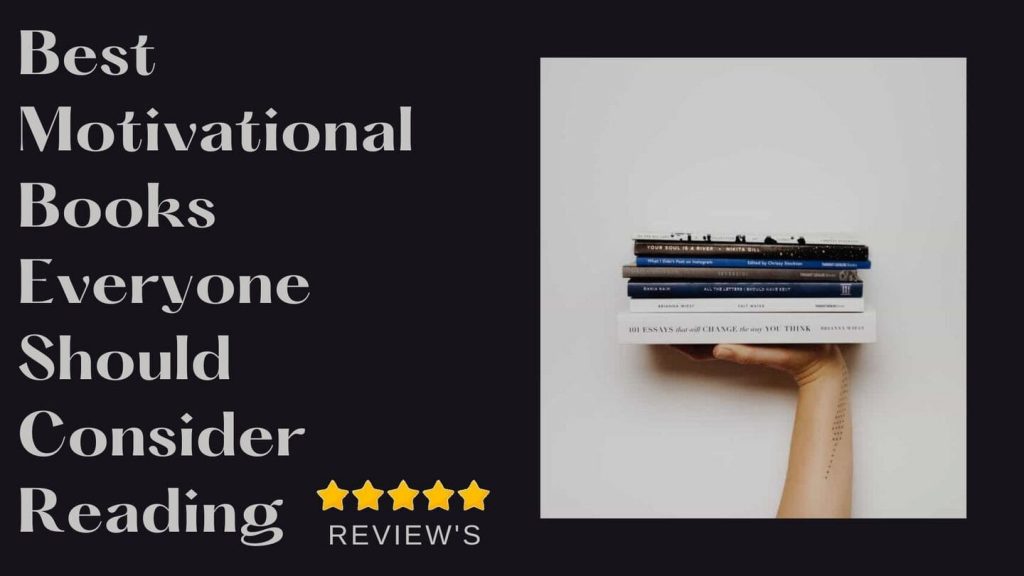


















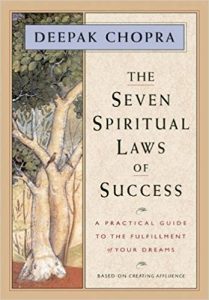
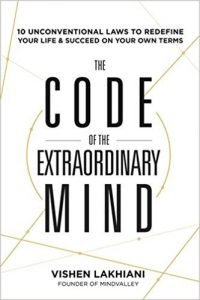



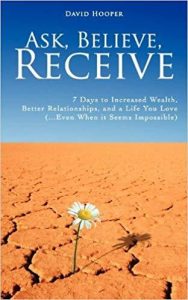

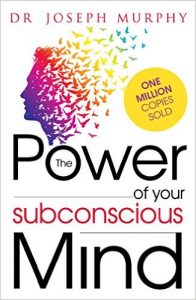
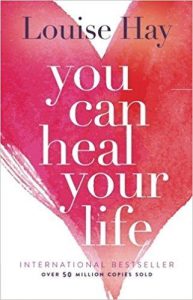
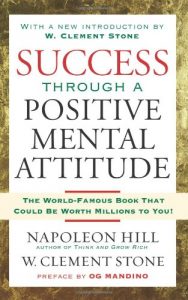
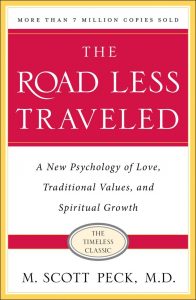
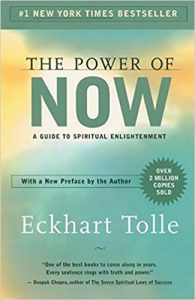




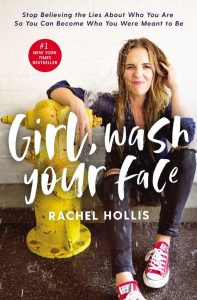
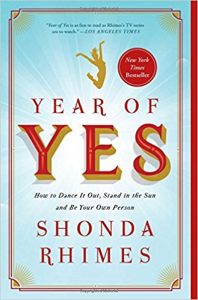
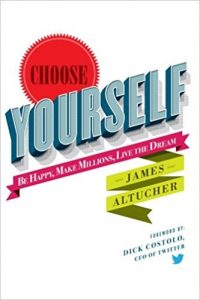
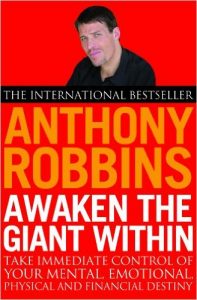
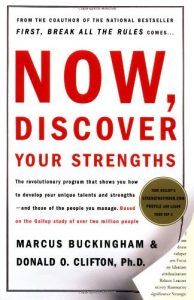
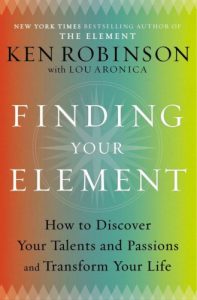



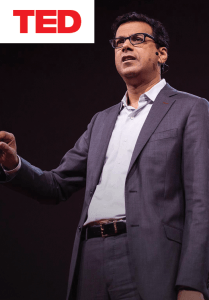
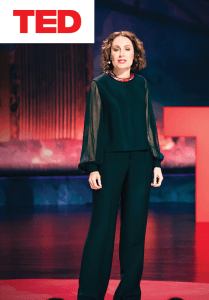


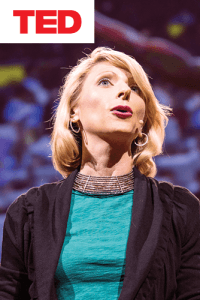
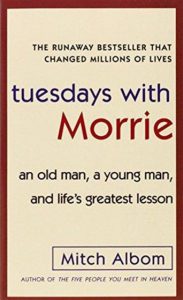
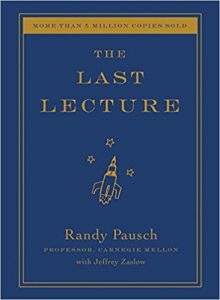


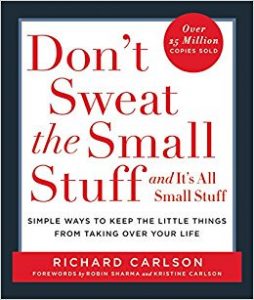
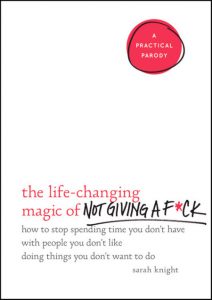
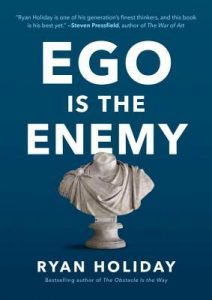
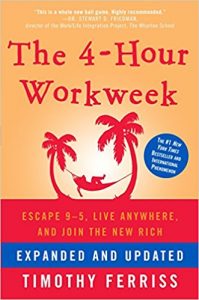
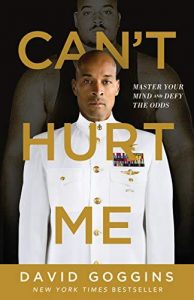
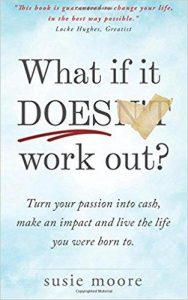
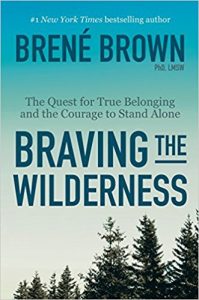
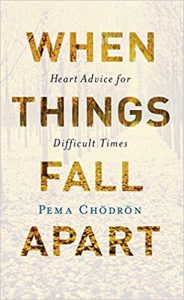


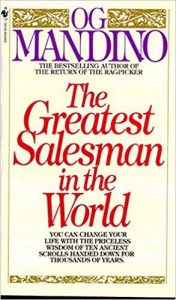
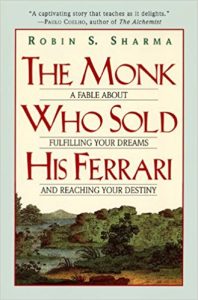
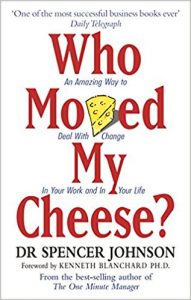

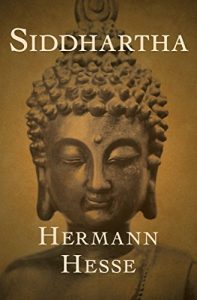

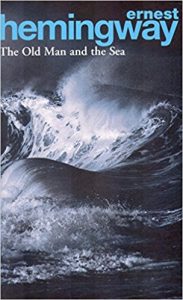
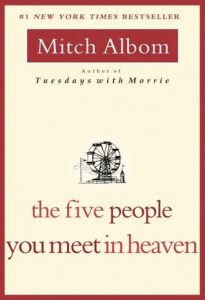

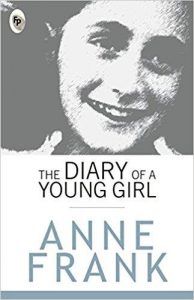
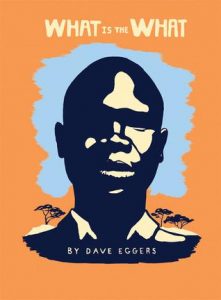
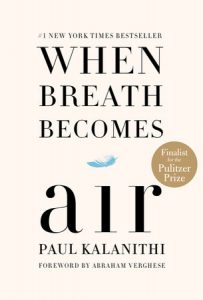
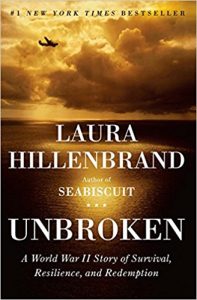

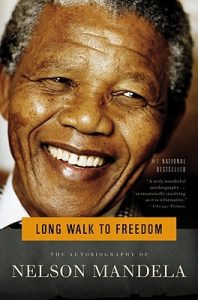
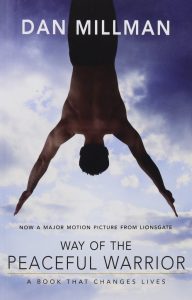
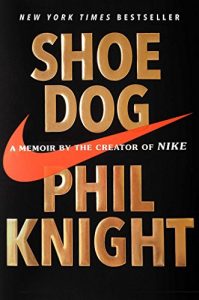
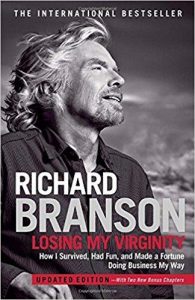

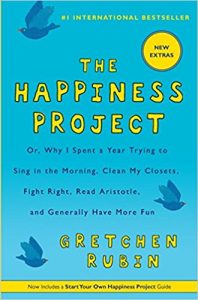
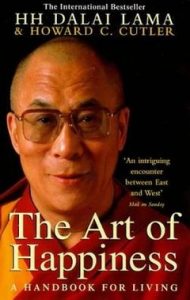
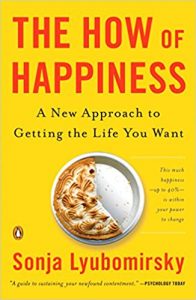
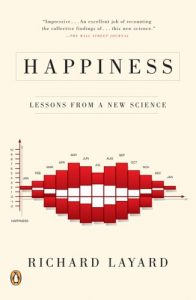
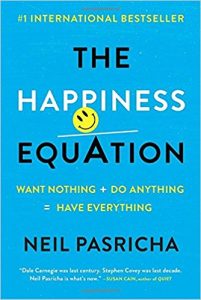
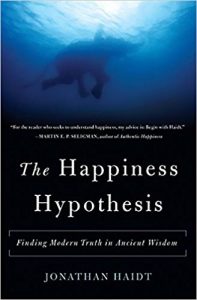
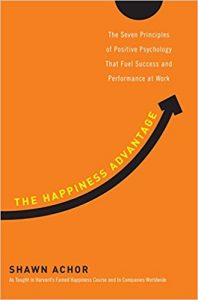
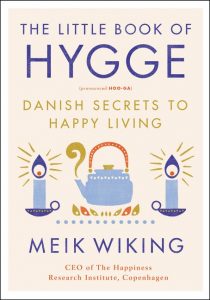
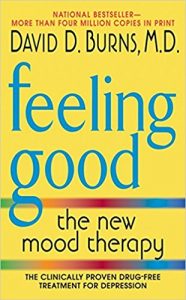

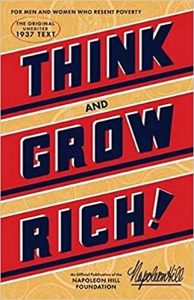
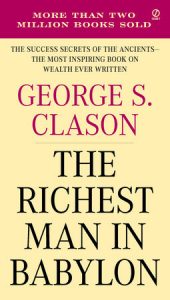
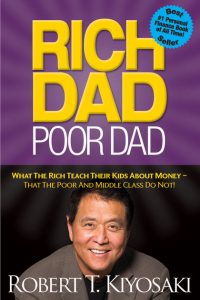
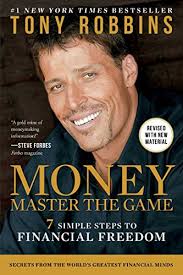
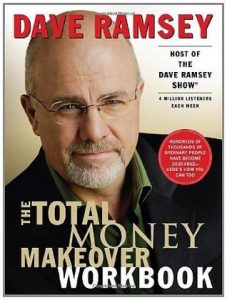
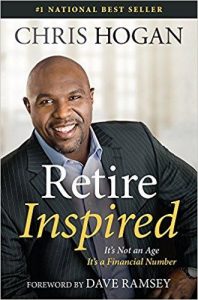
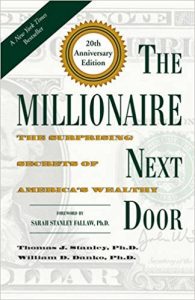
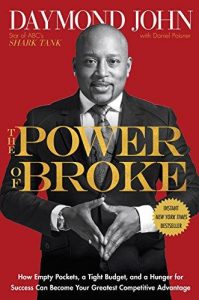
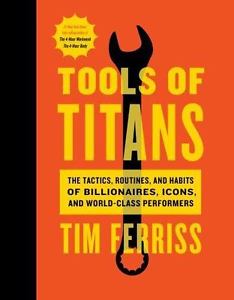
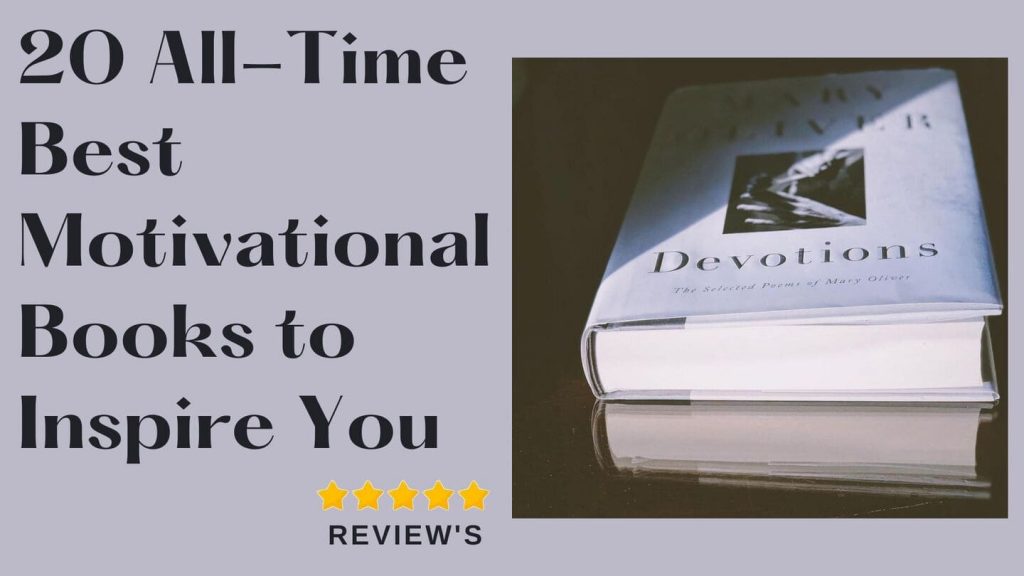
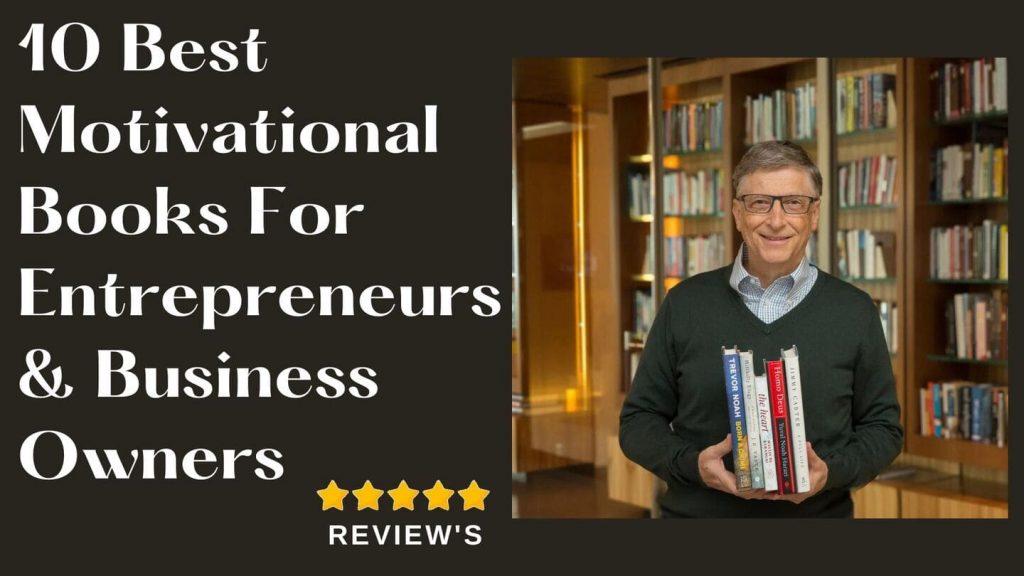
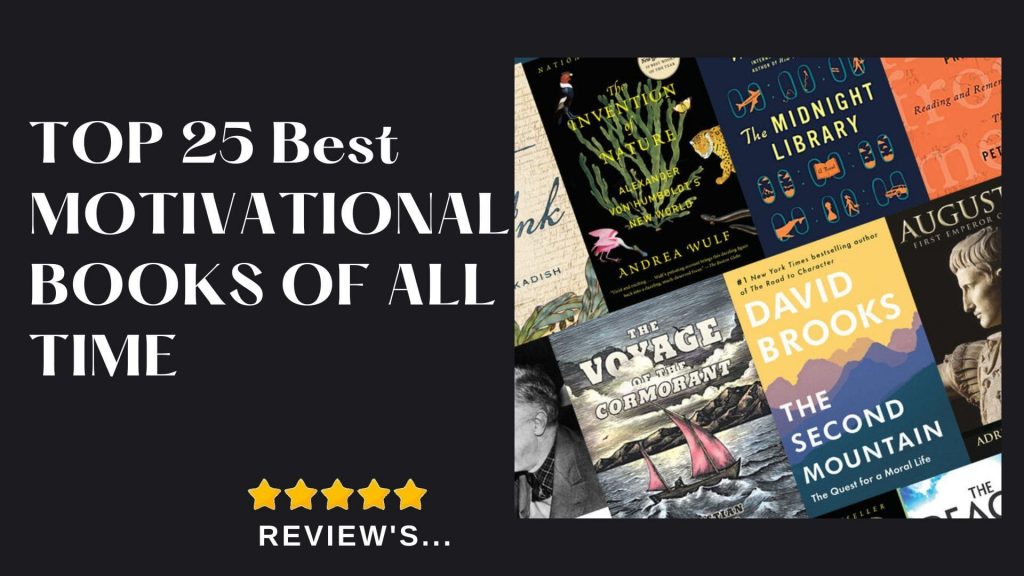
![Top 14 best Motivational Books to Read [Best Sellers]](https://12rack.com/wp-content/uploads/2022/10/1-29-1024x576.jpg)
